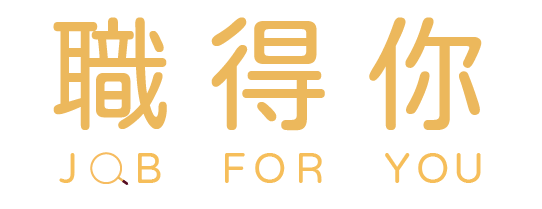
Mental Health Assessment In Schools
關注總覽
-
工作分類 批發/零售/傳直銷業
-
已發佈的工作 0
公司描述
9 Things Your Parents Taught You About Mental Health Tools
Essential Mental Health Tools for Well-Being
Mental health is an integral part of total wellness, yet it frequently goes ignored in our hectic society. The importance of maintaining mental health is ending up being more widely recognized, and individuals are progressively looking for tools and methods to handle their psychological health successfully. This post will explore a variety of mental health tools that can assist in attaining emotional stability, resilience, and general happiness.
What Are Mental Health Tools?
Mental health tools incorporate a large range of resources, techniques, and practices created to boost psychological operating and emotional wellness. These tools can be classified into several categories:

-
Self-Help Resources: These consist of books, articles, and online platforms designed to promote personal growth and self-awareness.
-
Therapeutic Techniques: Methods utilized within psychotherapy or counseling sessions to deal with mental health problems efficiently.
-
Mindfulness Practices: Techniques focused on increasing awareness and existence, typically utilized to reduce symptoms of anxiety and depression.
-
Support Networks: Community resources and connections that supply emotional support.
-
Digital Tools: Apps and online resources created to track mental health or help with therapy.
Now let’s dive much deeper into these classifications and take a look at some particular tools that can be beneficial for mental health.
Self-Help Resources
Self-help resources can work as a valuable first step for individuals wanting to improve their mental health individually. Here are some examples:
Books
- The Gifts of Imperfection by Brené Brown: This book motivates people to accept their vulnerabilities.
- Feeling Good: The New Mood Therapy by David D. Burns: A timeless on cognitive behavior modification (CBT) concepts and strategies.
Online Platforms
- MindBodyGreen: Offers articles and courses centered around mental, emotional, and physical health.
- Headspace: A platform featuring directed meditations tailored for various mental health issues.
Restorative Techniques
Professional therapy can implement numerous methods tailored to a person’s needs. Some widely recognized methods consist of:
Cognitive Behavioral Therapy (CBT)
CBT concentrates on determining and altering unfavorable thought patterns to improve psychological policy.
Dialectical Behavior Therapy (DBT)
DBT is developed for individuals with extreme emotions and includes skills in mindfulness, distress tolerance, feeling policy, and interpersonal effectiveness.
Art and Music Therapy
These innovative treatments enable individuals to reveal feelings and thoughts non-verbally, typically causing breakthroughs in understanding and healing.
Mindfulness Practices
Mindfulness practices are progressively used to improve mental wellness by promoting present-moment awareness. Some popular techniques consist of:
-
Meditation: Techniques such as concentrated attention or loving-kindness meditation aid in minimizing stress and anxiety.
-
Breathwork: Techniques like pranayama can enhance psychological policy and relaxation.
-
Yoga: Incorporating movement, breath, and meditation promotes a holistic sense of wellness.
Support Networks
Constructing a reliable support network can substantially help in keeping mental health. Alternatives include:
-
Therapy Groups: Sharing experiences with others dealing with comparable challenges can cultivate connection and healing.
-
Peer Support Programs: These offer a network of individuals who can empathize with and support one another.
-
Community Organizations: Many regional and online companies use resources, workshops, and activities focused on promoting mental wellness.
Digital Tools
In our tech-driven world, many apps and digital platforms have actually emerged as necessary mental health tools, consisting of:
Mental Health Apps
-
Calm: Offers assisted meditations, sleep stories, and relaxation techniques.
-
Moodfit: A mental health app that tracks state of minds and provides resources to handle mental health better.
Online Therapy Platforms
-
BetterHelp: Connects people with certified therapists online, making mental healthcare accessible.
-
Talkspace: Provides therapy by means of messaging for those who choose discreet interaction.
The Importance of a Holistic Approach
Making use of a combination of these tools can result in a more comprehensive technique to mental health. While self-help techniques can supply immediate relief, seeking professional help might be important for attending to deeper problems. A mix of therapy, mindfulness, and a solid support network promotes a durable mental health framework.
Table: Summary of Mental Health Tools
| Category | Examples | Benefits |
|---|---|---|
| Self-Help Resources | Books, Online Platforms | Increase self-awareness, ease of access |
| Restorative Techniques | CBT, DBT, Art Therapy | Professional assistance, customized strategies |
| Mindfulness Practices | Meditation, Breathwork, Yoga | Stress reduction, enhanced focus |
| Support Networks | Therapy Groups, Peer Support | Emotional connection, shared experiences |
| Digital Tools | Mental Health Apps, Online Therapy | Flexibility, privacy, and accessibility |
Frequently Asked Questions About Mental Health Tools
1. What are the most effective mental health tools?
The effectiveness of mental health tools differs by person, however typically used tools include CBT, mindfulness practices, and support groups.
2. Can digital tools change therapy?
While digital tools can supplement therapy, they are not an alternative for expert aid when required. It is frequently advantageous to integrate both.
3. How can somebody find the best mental health tool for them?
It’s suggested to explore different tools and approaches, taking note of which resonate personally. Consulting a mental health specialist can also provide insight and direction.
4. Are these tools suitable for everyone?
A lot of tools can benefit a wide variety of people, but individual scenarios, choices, and mental health conditions may require tailored methods.
5. How typically should one usage mental health tools?
Consistency is key. Routine practice (daily or weekly) can yield much better outcomes than sporadic usage.
Mental health is important to leading a fulfilling and well balanced life. By utilizing a combination of self-help resources, therapeutic strategies, mindfulness practices, support networks, and digital tools, people can cultivate a robust structure for mental well-being. Each person’s journey is distinct, so checking out various alternatives is necessary to finding what works best. Eventually, the goal is not merely to handle mental health challenges however to flourish mentally and emotionally.
